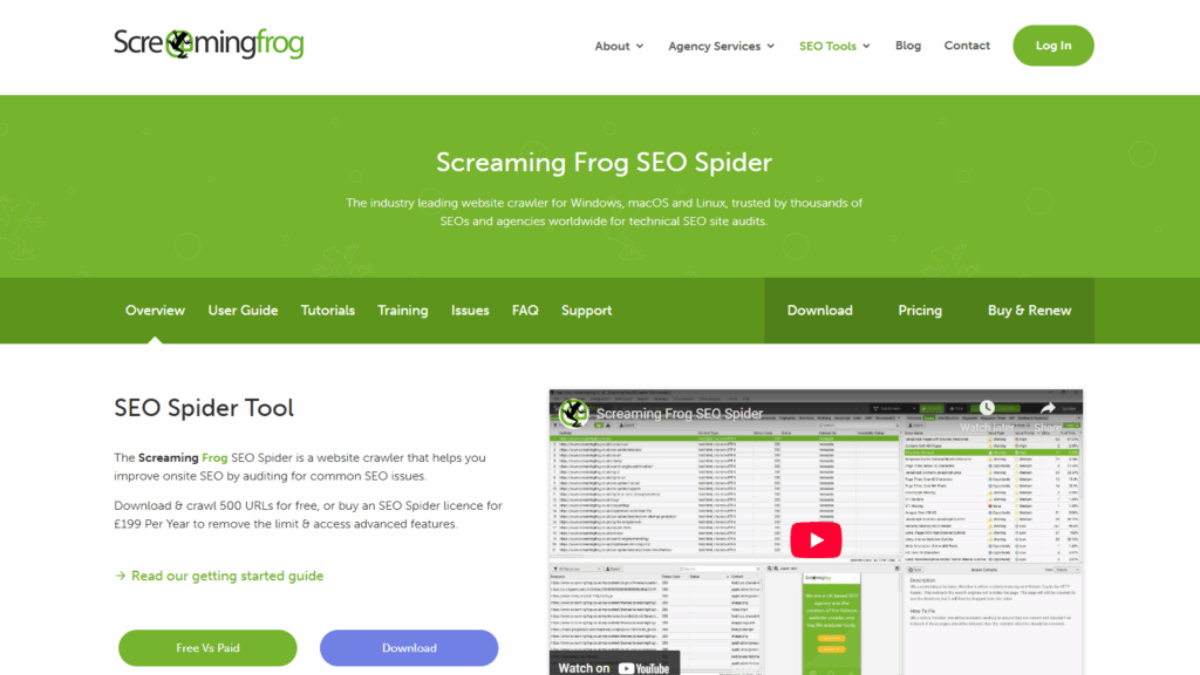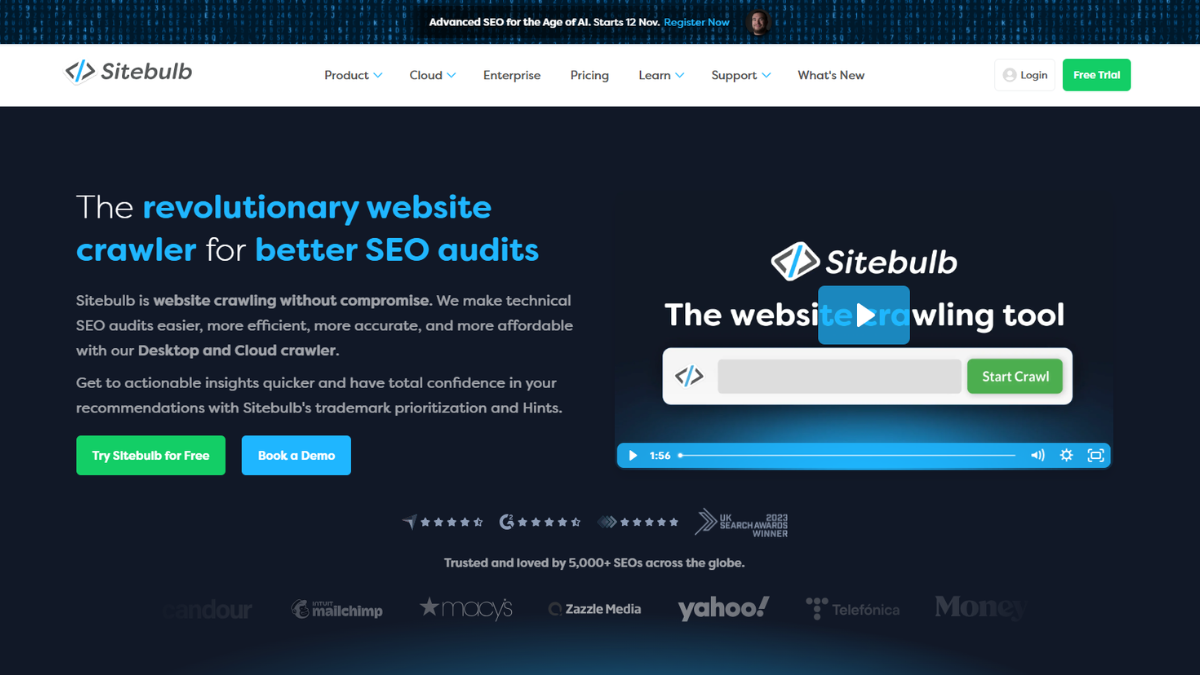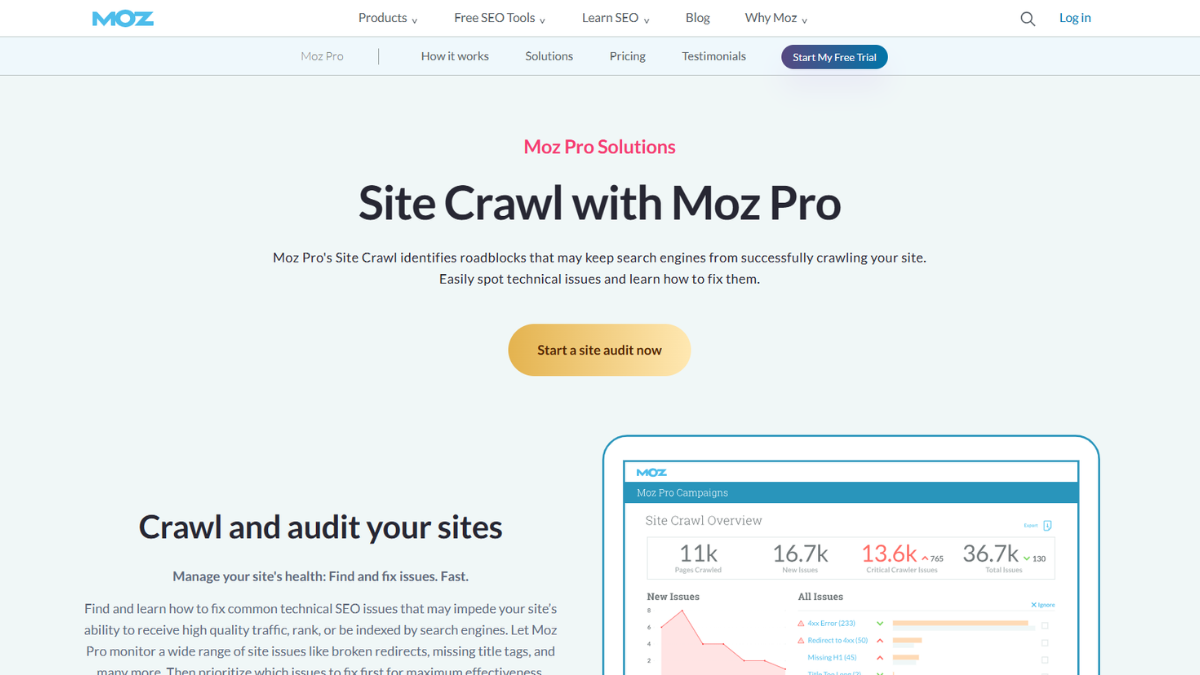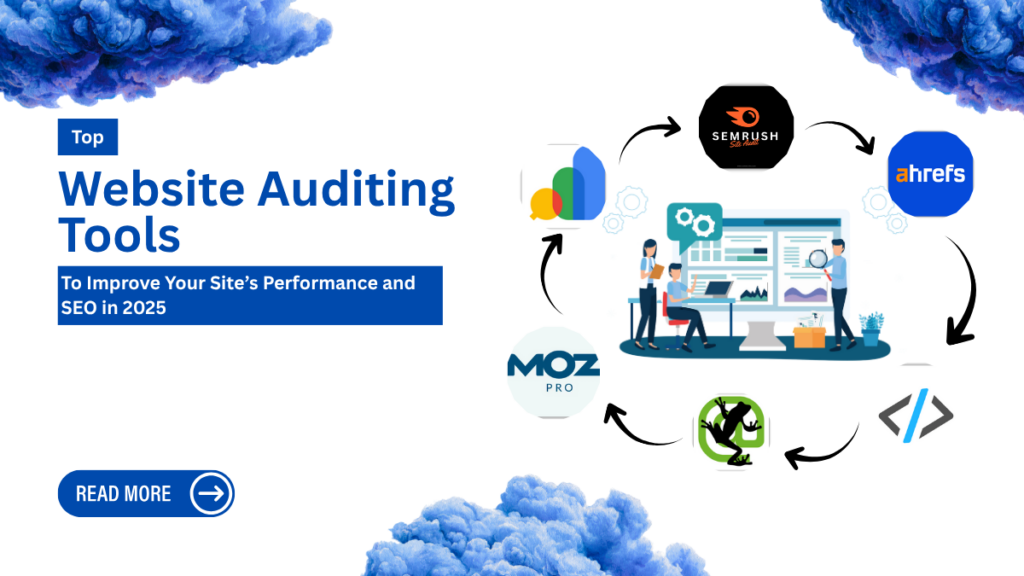In today’s competitive digital world, maintaining a high-performing and SEO-optimized website is essential for success. Whether you manage an online store, a business site, or a blog built using WordPress Block Themes, regular website audits ensure your platform runs smoothly and efficiently. Auditing Tools play a crucial role in identifying technical errors, improving site speed, enhancing user experience, and optimizing SEO performance. They help you monitor various aspects like broken links, duplicate content, mobile responsiveness, and security vulnerabilities. With countless online tools available, finding the right auditing solution can significantly impact your site’s growth and visibility. As we step into 2025, using advanced Website Auditing Tools can help website owners gain deeper insights, make data-driven decisions, and stay ahead in search rankings. In this blog, we’ll explore the top tools you can use to audit your website effectively and boost performance.
What Is a Website Audit?
A website audit is a comprehensive evaluation of your website’s overall performance, SEO health, and security. It helps identify errors, weaknesses, and opportunities for improvement across multiple site elements, including speed, usability, and content quality. Auditing Tools analyze various metrics such as indexing, backlinks, keywords, and technical configurations. The goal of a website audit is to ensure your site meets the latest search engine guidelines, offers an excellent user experience, and performs well on all devices. Regular audits help maintain website efficiency and drive consistent organic traffic growth.
Different types of audits:
SEO Audit
An SEO audit focuses on assessing how well your website follows search engine optimization best practices. It examines keyword usage, backlinks, meta descriptions, title tags, and overall content structure. Website Auditing Tools identify technical SEO issues like missing alt tags, broken internal links, and crawl errors. Performing regular SEO audits ensures that your website remains visible in search results, drives more organic traffic, and competes effectively in your niche by maintaining keyword relevance and link authority.
Performance Audit
A performance audit measures how efficiently your website loads and operates across devices. It analyzes speed, responsiveness, and server performance, helping you understand how quickly users can interact with your site. Auditing Tools highlight issues like large image files, unoptimized code, and slow-loading scripts that can affect user experience. Optimizing site performance ensures better engagement, lower bounce rates, and higher conversions. For WordPress users, understanding how to add plugins to WordPress can simplify performance improvements.
Security Audit
A security audit identifies vulnerabilities and potential threats that could harm your website. It checks SSL certificates, data encryption, plugin safety, and malware risks. Auditing Tools and a reliable WordPress security plugin work together to detect loopholes before they become serious threats. Regular security audits protect sensitive data, maintain user trust, and prevent unauthorized access or hacking attempts. In today’s digital era, staying proactive about website security is essential for building a safe online presence.
Content Audit
A content audit evaluates your website’s text, images, and videos to ensure they are engaging, relevant, and SEO-friendly. Auditing Tools analyze metrics such as duplicate content, keyword density, readability, and user engagement. This helps you refine your content strategy by identifying high-performing pages and those needing improvement. Regular content audits enhance user experience, strengthen brand messaging, and improve overall search visibility by keeping your website informative, current, and aligned with audience expectations.
How Audits Contribute to a Site’s Overall Health and Digital Success
Website audits provide the foundation for long-term digital success. By using Website Auditing Tools, you gain insights into technical, content, and SEO performance issues that impact user experience and search rankings. Regular audits help maintain consistent site health, boost traffic, and increase conversion rates. They also ensure your website aligns with the latest Google algorithms, providing an edge over competitors. In short, auditing ensures your website remains secure, optimized, and high-performing throughout its lifecycle.
Key Features to Look for in a Website Auditing Tool
- Comprehensive site scanning and reporting: The best Auditing Tools perform deep crawls across all pages, detecting broken links, duplicate content, and speed issues while providing detailed, actionable reports.
- Real-time error detection: Instant error alerts help you fix SEO, security, or performance issues immediately before they affect user experience or search rankings.
- Integration with analytics and SEO tools: Seamless integration with platforms like Google Analytics and Search Console allows for enhanced data tracking and strategic improvements.
- User-friendly dashboard and automation options: Tools with intuitive interfaces and automated reporting save time while simplifying complex audit processes.
- Cost-effectiveness and scalability: A good Website Auditing Tool should offer affordable pricing plans and scalability for growing websites or agencies managing multiple clients.
Top Website Auditing Tools in 2025
Google Search Console

Google Search Console remains one of the most powerful and free Website Auditing Tools for tracking site performance and indexing. It helps identify issues that affect search visibility and provides recommendations directly from Google.
Key Features:
- Real-time indexing reports
- Keyword performance tracking
- Mobile usability insights
- Security and manual action alerts
- URL inspection for better crawling
SEMrush Site Audit

SEMrush offers an all-in-one platform for SEO audits, keyword analysis, and performance tracking. Its site audit feature scans for more than 130 SEO and technical issues, making it ideal for professionals.
Key Features:
- Comprehensive SEO and site health reports
- Integration with Google tools
- Backlink and keyword analysis
- Automated audits and notifications
- On-page SEO suggestions
Ahrefs Site Audit

Ahrefs provides a robust website crawler that deeply analyzes SEO and backlink health. It detects errors that can harm rankings and visualizes your site’s performance through detailed reports.
Key Features:
- Crawlability and indexability checks
- Detailed backlink audit
- SEO health score visualization
- Site structure mapping
- JavaScript rendering analysis
Screaming Frog SEO Spider

Screaming Frog is a favorite among SEO experts for in-depth technical auditing. It efficiently crawls large websites, identifying broken links, redirects, and metadata issues.
Key Features:
- Fast, detailed site crawls
- Duplicate content detection
- XML sitemap generation
- Integration with Google Analytics
- Custom extraction capabilities
GTmetrix

GTmetrix specializes in analyzing page speed and performance. It provides insights into what slows down your site and how to fix it for a better user experience.
Key Features:
- Page speed scoring
- Waterfall analysis visualization
- Mobile and desktop performance comparison
- Video playback of load performance
- Actionable performance suggestions
Sitebulb

Sitebulb delivers visually rich audit reports, making it easy to identify critical issues and prioritize fixes. Its combination of data visualization and SEO insights makes it powerful yet accessible.
Key Features:
- Interactive visual audit reports
- Detailed crawl analysis
- Issue prioritization
- Website hierarchy visualization
- Link audit capabilities
Moz Pro Site Crawl

Moz Pro is an excellent choice for beginners and small businesses. Its site crawl identifies SEO and performance issues while providing easy-to-understand recommendations.
Key Features:
- Crawl diagnostics
- Domain authority tracking
- On-page optimization suggestions
- Ranking insights
- Weekly automatic reports
How to Choose the Right Website Auditing Tool
- Define your goals: Identify whether you need SEO insights, performance analysis, or security audits to pick the right Website Auditing Tools.
- Consider your technical expertise: Beginners should opt for tools with simplified dashboards and guided recommendations.
- Check integration options: Choose a tool compatible with Google Analytics or other marketing platforms.
- Evaluate pricing: Ensure it fits your budget while providing essential features.
- Scalability: Select a tool that can handle your website’s growth and increasing traffic needs.
Benefits of Regular Website Audits
- Improved site performance and loading times: Website Auditing Tools detect slow-loading pages and optimization issues to enhance speed and user satisfaction.
- Better search engine visibility: Audits help fix SEO errors that could affect indexing and ranking.
- Enhanced user experience and conversions: A smoother, faster site encourages longer visits and higher conversion rates.
- Detection and prevention of SEO or security issues: Identifying threats early helps protect your site and maintain trust.
- Data-driven website improvements: Insights from audits guide strategic updates for better long-term results.
| Tool | Best For | Ideal Use Case |
| Google Search Console | Free technical SEO insights and indexing performance | Best for beginners or small businesses looking to monitor site visibility and fix crawl errors. |
| SEMrush Site Audit | All-in-one SEO and performance auditing | Ideal for agencies and marketers needing comprehensive SEO analysis and automated reports. |
| Ahrefs Site Audit | Deep technical and backlink audits | Great for large websites and SEO experts focusing on crawlability and link health. |
| Screaming Frog SEO Spider | Technical crawl of large websites | Perfect for SEO professionals handling detailed technical checks and on-site data exports. |
| GTmetrix | Performance and page-speed auditing | Best for developers and site owners aiming to optimize speed and Core Web Vitals. |
| Sitebulb | Visual audits with issue prioritization | Ideal for SEO consultants and enterprises requiring interactive, visual reports and audit tracking. |
| Moz Pro Site Crawl | Beginner-friendly SEO and site health tracking | Great for small businesses or individuals who want simplified SEO issue monitoring. |
Tips for Conducting Effective Website Audits
- Schedule monthly or quarterly audits.
- Keep an SEO and performance checklist.
- Use multiple Website Auditing Tools for comprehensive insights.
- Automate reporting to save time.
- Compare results over time to measure progress.
- Regularly update plugins and themes.
- Back up your website before major changes.
Conclusion
As websites continue to evolve, using the top website auditing tools have become more important than ever for maintaining speed, security, and SEO excellence. These tools empower businesses to identify performance bottlenecks, security risks, and content gaps effectively. Whether you’re managing a large eCommerce platform or a blog built with WordPress, regular audits ensure that your digital presence remains strong, efficient, and competitive. Pairing these audits with a comprehensive WordPress Theme Bundle can further enhance design consistency and performance optimization. By leveraging advanced WebsiteAuditing Tools, you can make informed improvements that not only enhance user experience but also boost visibility and conversions. Staying proactive with audits ensures your website remains secure, fast, and aligned with the latest SEO standards, helping you achieve lasting success in 2025 and beyond.
Frequently Asked Questions (FAQs)
Website Auditing Tools are designed to analyze your website’s performance, SEO structure, and technical health. They help identify issues such as broken links, slow page speeds, duplicate content, and security vulnerabilities so you can optimize your website for better user experience and search engine rankings.
It’s recommended to perform a website audit at least once every quarter. However, if your website undergoes frequent updates or content changes, monthly audits can help you stay on top of potential issues and maintain peak performance.
Yes, free tools like Google Search Console and PageSpeed Insights provide valuable insights into your site’s technical and SEO performance. While premium tools offer more detailed analytics and automation, free options are excellent for small businesses or beginners.
Absolutely! Many Auditing Tools come with user-friendly dashboards and automated reporting features that make the auditing process simple. WordPress users can also install plugins to scan their websites for SEO, security, and performance issues.
Website audits identify and fix technical and content-related issues that affect visibility on search engines. By optimizing elements like site speed, mobile responsiveness, and meta tags, you improve overall SEO performance and enhance user satisfaction, both crucial for better rankings.










